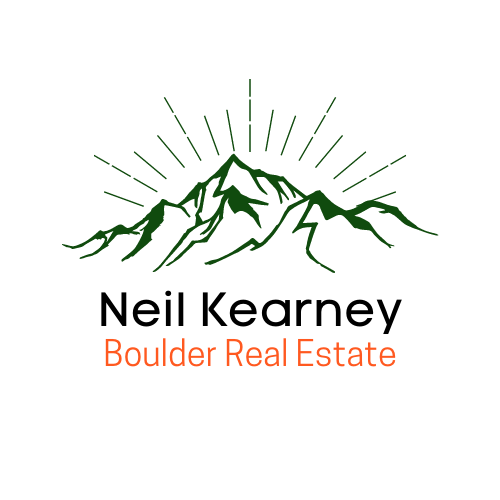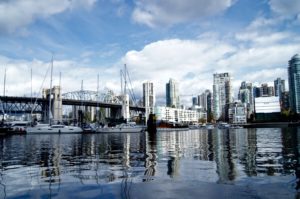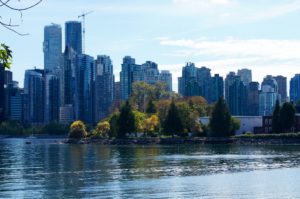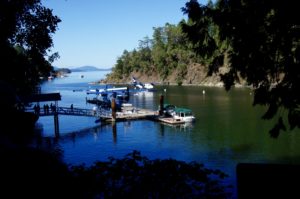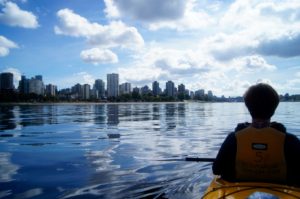How Involved Should Government Be In Real Estate Transactions?
What just happened in Vancouver
In mid July the British Colombia provincial government convened a special session and passed a 15% transfer tax for real estate transactions in the greater Vancouver area involving foreign buyers. The tax went into effect on August 2nd. The average price of a home in Vancouver is over $1 million so the tax inserted mid stream into the transaction was in most cases over $100,000. There was no grandfather clause and many transactions that were in process didn’t close. The ripple effect has been severe and sudden.
Let’s back up and discuss why the government felt the need to implement this new “out of the blue” tax in such a short time frame. Over the past year real estate prices have increased by over 30%. Much of this appreciation is due to foreign buyers paying cash for real estate as a safe harbor for money instead of their national banks. Most of the foreign buyers in the Vancouver area are Chinese. I talked with a local and he said that he lives in a nice neighborhood and there are quite a few homes that are owned by Chinese citizens and are sitting vacant. The yards are being maintained but nobody is moving in. The local government officials were seeing their citizens being priced out of the market and homes sitting vacant. In their mind something had to be done. And they did it.
Since the new transfer tax went into effect on August 2nd, the market in the Vancouver area has come to an abrupt halt. Many transactions that were in process were cancelled and many buyers and sellers, both foreign and local, have taken a wait and see approach. It has been reported that many Chinese buyers have moved on to other Canadian cities such as Toronto. For better or worse the strategy seems to have worked.
What does this have to do with Boulder?
So what does this have to do with Boulder? There is no transfer tax in the City and County of Boulder but there are a number of statutes and fees that have a similar effect. Connecting real estate to government programs can be an enticing and slippery slope. Here are a few of the programs that affect real estate and are already in place in Boulder.
- Permit Fees – Getting a building permit in the Boulder area (both City and County) takes time, persistence and a deep pocket book. The goal of the local government seems noble – to require that new building or major remodeling be done in a safe, energy efficient manner that is consistent with the area in which the house sits. However, the process has become onerous to the extent that it’s difficult for a homeowner to navigate the process without professional help. The high fees are really taxes that fund programs that the local government has deemed is best for all but should only be paid for by those who want to exercise their right to improve their property.
- Inclusionary Zoning – From the City of Boulder website “Inclusionary Housing (IH) requires that new residential development contribute at least 20% of the total units as permanently affordable housing. Options for meeting this requirement include providing the permanently affordable units on-site, dedicating off-site newly constructed or existing units as permanently affordable, dedicating vacant land for affordable unit development or making a cash contribution to the Affordable Housing Fund, in lieu providing affordable units (Cash-in-lieu). Regardless of size, all annexed parcels with residential unit development potential are subject to the requirements of IH.” So, while I agree that we need to promote affordable housing in our community, this regulation forces developers to make their profit on 80% of their project. Making the market rate housing that they sell more expensive.
- Green Points – From the City of Boulder website – “The Green Building and Green Points Program encourages the use of
sustainable remodeling and building methods and technologies to conserve energy, water and other natural resources. The Green Points Program applies to all new residential construction, and additions and remodels larger than 500 square feet. The purpose of the Green Points Program is to:
- help homeowners find the products and designs for building “green;”
- encourage Boulder homeowners to include cost-effective and sustainable remodeling and building methods that conserve fossil fuels, water and other natural resources;
- promote the recycling of construction materials and reduce solid waste; and
- promote better indoor air quality.”
In order to comply with the Green Points program homeowners and builders end up adding features to their homes that they didn’t necessarily want. More than once I have heard of people adding an electric car charging station to their home when they don’t have an electric car – just because they needed more “Green Points”.
- Smart Regs – Half of the housing stock in Boulder is made up of rentals. These rentals tend to not be improved upon as much as single family homes and tend to be held for longer periods of time by investors. Therefore, the measures included in the first three bullet points rarely came into play. So, a set of prescribed, required upgrades were designated for all rental properties in the city with a due date of December 31, 2018. Again from The City’s website “The SmartRegs ordinances update the City of Boulder Housing Code, Rental Licensing Code, and provide new baseline energy efficiency requirements for existing rental housing in Boulder. Improving energy efficiency in existing rental housing enhances tenant comfort and supports the community’s energy goals and climate commitment.”
- Septic Smart – This one is fairly straight forward. The county wants to maintain the quality of the water throughout the county and many of the septic systems are very old. So in order to mandate inspections they required that septic systems pass inspections and pay a small fee prior to property transfer. Not a big deal but another precedent of looking to real estate transactions to solve other problems.
The City and County governments have many plans on how to make our area a model community and it will clearly take money in order to make many of these plans come to reality. I’m afraid that Boulder may move past voter approved sales taxes for open space, and permit and use fees for builders to a more wide spread and lucrative real estate transfer tax. Colorado mountain communities such as Aspen and Vail charge a transfer tax and now it happened in Vancouver in just two weeks without a popular vote – Special session. During the summer when the government officials were supposed to be on vacation. Food for thought…
Note: I took the included photos on a trip to Vancouver last year. It was gorgeous! To enlarge the photo just click on the photo and then hit the “back” button on your browser to come back to the story.
